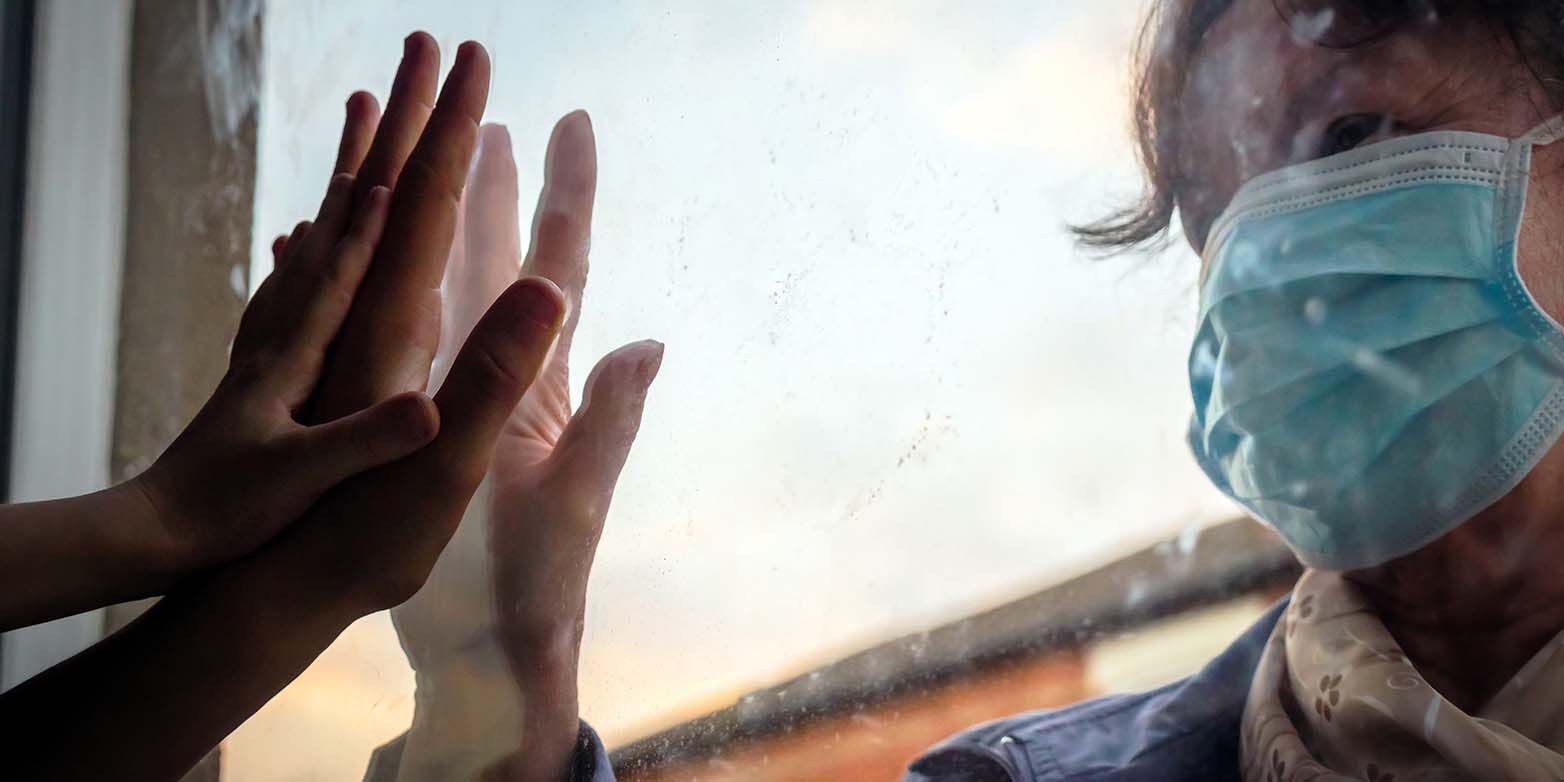How to best deal with unavoidable threats like that of the pandemic
José Antonio Pérez Escobar studied who was best able to cope with the pandemic. People who are able to deal with negative emotions were particularly successful. This skill can be learned, he says.

In the past almost two years, the COVID-19 pandemic has subjected most of the world’s population to unprecedented situations at big scales. Most people's freedom of movement was severely restricted for a long time, some people were socially isolated and many more than usual lived in fear for their health or for the lives of their loved ones, or in fear of the economic impact of the pandemic. All this has affected the mental health of the general population. Since the limitations, suffering and fears were and are due to the pandemic, and they cannot be avoided, it is essential that people can cope with them. We all have to deal with our own threats, our perception of them and the negative emotions associated with them. It is important to integrate these emotions into our life adaptively. Compulsively trying to avoid negative emotions would not be a helpful strategy.1
We conducted a study of over 12,000 volunteers from 30 countries to see how they coped with the pandemic and its limitations last year.2 Indeed, our research has shown that people who have higher degrees of meaning in life (for example, in the form of important personal values, related long-term goals, and commitment to fulfil them) are better at processing negative affect. Consequently, they have suffered from less stress, depression and anxiety during the pandemic.

These were people who agreed with statements like “I will get out of this situation stronger than I was before”, “I do something productive every day”, “I use this situation to get closer to my loved ones” and “I am grateful for my life as it is”. These individuals have higher degrees of what we call “inner harmony”, which is a state of mind of persons who manage to accept both positive and negative aspects of their lives and integrate them into their lives. Inner harmony is often associated with calmness, acceptance, contentment, long-term happiness and life satisfaction.3
In my view, the process of incorporating negative emotions in our lives has been neglected in psychology over the past decades. Mainstream psychology has focused on personal deficits and psychopathology, and first generation positive psychology (what most people understand by positive psychology) has focused on positive emotions. Both have failed to integrate negative emotions into our lives. Such a failure prevents the development of psychological resilience, personal growth from challenges and it also prevents us from achieving a state of inner harmony. For this, we need to embrace both the negative and the positive aspects of life, instead of repressing the former. This is especially important in (but not restricted to) the context of a pandemic, where negative emotions are commonplace and difficult to avoid.
Reframing difficult situations
Central to this is a technique called reframing. This is an old resource in the philosopher’s toolbox and it basically consists in changing our perspective of a problem in order to reach useful ways of addressing it. This is because the way a problem is framed and therewith defined sometimes constrains how it can be addressed. An example of this is the treatment of tobacco addiction. It can be considered as a biological disease that needs to be medicated or as a psychological problem to be psychologically treated. When it comes to giving up smoking, psychotherapy is more effective than pharmacological therapy, as research has shown. Hence, at least today, it is more productive to see tobacco addiction as a psychological problem.4
Additionally, reframing has been discussed in psychology, in the context of stress. A difficult event can be perceived, for example, either as a threat or as a challenge. Reframing difficult events and their associated negative emotions is an alternative to repressing them. Especially when difficult events cannot be avoided, as was and still is the case of the COVID-19 pandemic, it is critical to adopt healthy stress appraisal strategies.
"The limitations, suffering and fears were and are due to the pandemic, and they cannot be avoided."José Antonio Pérez Escobar
Those at particular risk should learn reframing
Appraising difficult events as opportunities for personal growth and developing inner harmony and resilience are not innate skills. Anyone can learn them provided appropriate training and commitment, and professional aid may help. For instance, meaning therapy promotes a shift of focus from shallow relationships and a hedonic lifestyle to deeper relationships, personal goals and values, and self-improvement.5 This makes one more resilient to adversity and also promotes the framing of hardship as challenges (even as opportunities for personal growth) instead of threats. This includes, for example, framing social distancing and economic threats as challenges that may improve one’s personal strengths and resilience, foster one’s focus on their goals, strengthen emotional bonds and increase one’s appreciation of relationships and life.
Such a mindset and reframing skills are especially important for populations at risk. Our results suggest that females, young people, students, low-income workers and especially people with a pre-existing mental or physical disorder are the groups who experienced stress, anxiety and depression the most during the pandemic. However, these groups also benefited the most from a healthy coping style based in meaning in life.2 For this reason, the learning of healthy reframing skills and promotion of meaning in life and inner harmony should be put on the political agenda and integrated in the guidelines of institutions like the World Health Organization.
When it comes to guidelines and social policies, it is important not to focus only on risk factors and ways to avoid the difficult situations in which the pandemic puts us. There should also be an emphasis on reframing difficulties, promoting the acceptance of negative emotions, and fostering resilience and responsibility.
It is critical that people do not regard themselves as passive sufferers or avoiders of threats, but are encouraged to be proactive, face challenges, and integrate the dark side of life in a harmonic, meaningful and resilient whole, especially in the context of unavoidable difficulties.
References
1 Wong PTP: Made for Resilience and Happiness: Effective Coping With COVID-19. INPM Press, Toronto, 2020
2 Eisenbeck N, Carreno DF, Pérez-Escobar JA: Meaning-centered coping in the era of COVID-19: direct and moderating effects on depression, anxiety, and stress. Frontiers in Psychology 2021, 12: 667
3 Carreno DF, Eisenbeck N, Pérez-Escobar JA, García-Montes JM: Inner harmony as an essential facet of well-being: a multinational study during the COVID-19 pandemic. Frontiers in Psychology 2021, 12: 911
4 Carreno DF, Pérez-Escobar JA: Addiction in existential positive psychology (EPP, PP2. 0): from a critique of the brain disease model towards a meaning-centered approach. Counselling Psychology Quarterly 2019, 32: 415
5 Wong PTP: Existential positive psychology and integrative meaning therapy. International Review of Psychiatry 2020, 32: 565
Comments
No comments yet